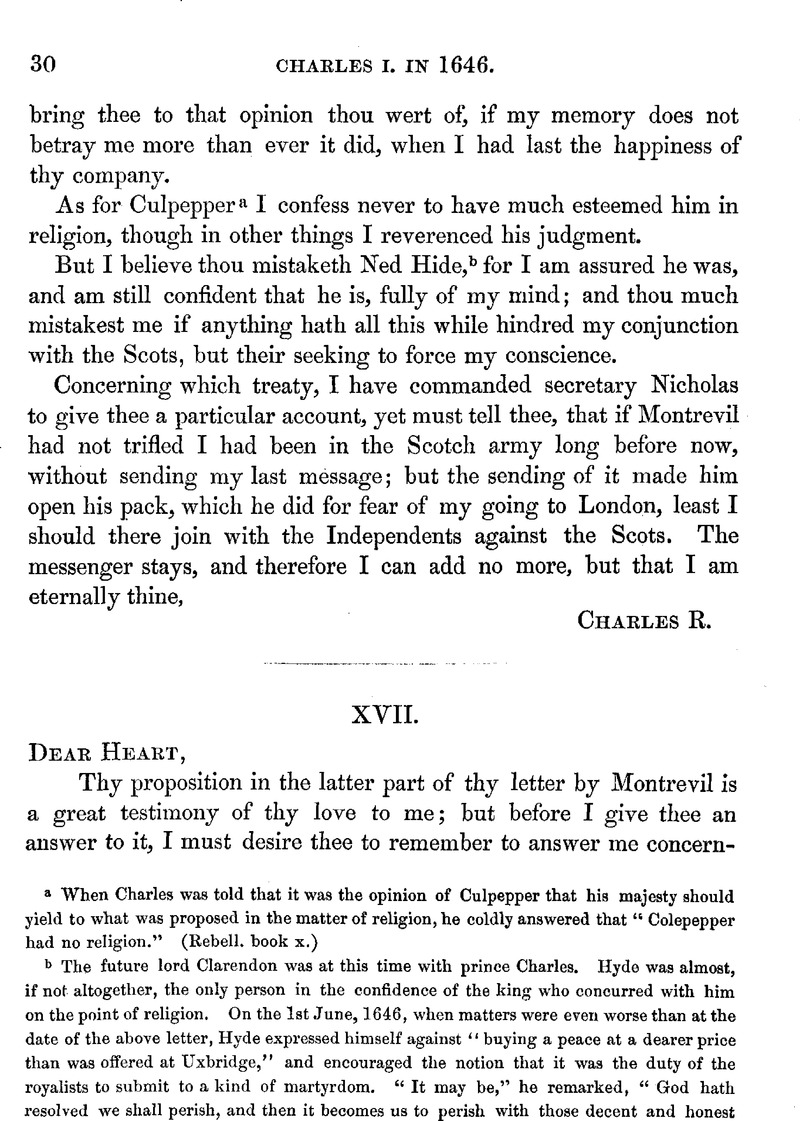No CrossRef data available.
Article contents
Letters from King Charles I. to Queen Henrietta Maria. XVII
Published online by Cambridge University Press: 23 February 2010
Abstract

- Type
- Charles I. in 1646
- Information
- Camden Old Series , Volume 63: Charles I. in 1646. Letters of King Charles the First to Queen Henrietta Maria , April 1856 , pp. 30 - 31
- Copyright
- Copyright © Royal Historical Society 1856
References
page 30 note a When Charles was told that it was the opinion of Culpepper that his majesty should yield to what was proposed in the matter of religion, he coldly answered that “Colepepper had no religion.“(Rebell. book x.)
page 30 note b The future lord Clarendon was at this time with prince Charles. Hyde was almost, if not altogether, the only person in the confidence of the king who concurred with him on the point of religion. On the 1st June, 1646, when matters were even worse than at the date of the above letter, Hyde expressed himself against “buying a peace at a dearer price than was offered at Uxbridge,” and encouraged the notion that it was the duty of the royalists to submit to a kind of martyrdom. “It may be,” he remarked, “God hath resolved we shall perish, and then it becomes us to perish with those decent and honest circumstances that our good fame may procure a better peace to those who succeed us than we were able to procure for them, and ourselves shall be happier than any other condition could render us.” (Clarendon's State Papers, ii. 237.)


